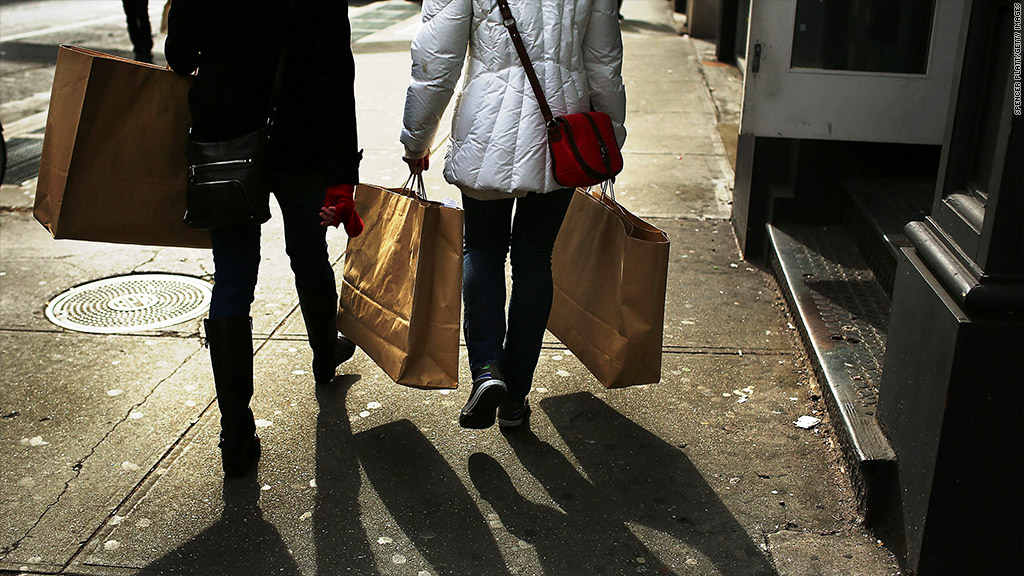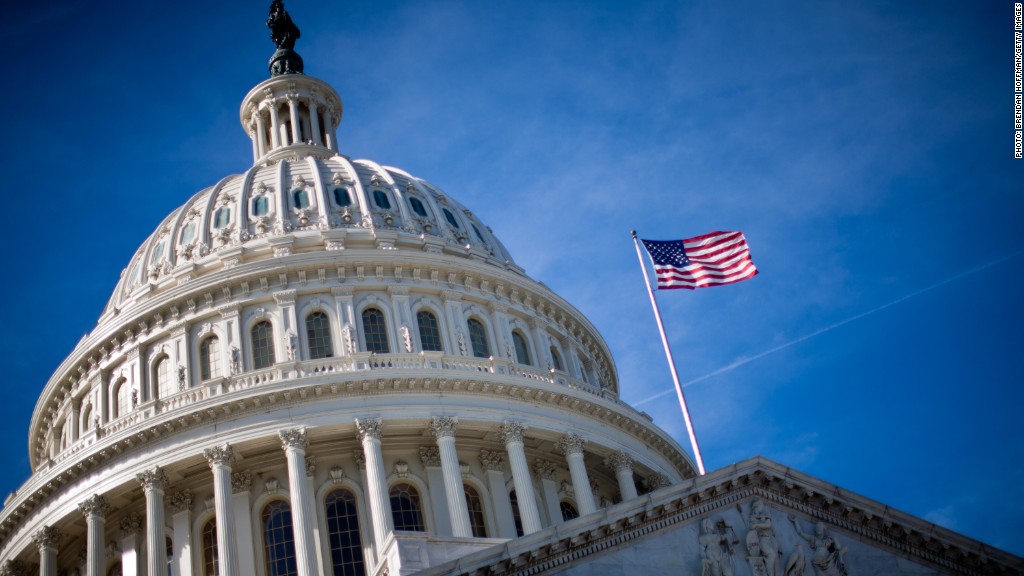
Smarting from smaller paychecks, consumers are tightening their budgets and looking for other ways to save money, according to a survey released Thursday.
Nearly three-quarters of respondents said they were cutting back to cope with tax changes this year -- including dining out less, limiting travel plans and skipping everyday indulgences, according to the National Retail Federation, which sponsored the survey.
"We cannot grow the nation's economy until consumers consume," said NRF chief executive officer Matthew Shay in a statement.
Consumers are seeing smaller paychecks after a two-year payroll tax "holiday" expired this year. The rate returned to 6.2% on the first $113,700 of annual income, up from 4.2%. For workers earning $30,000 a year, that means about $50 less in their paychecks each month. For those earning $100,000 annually, it's about $167 less a month.
Americans also are facing higher prices at the pump, potentially delayed tax refunds and fears about forced federal budget cuts that could mean the loss of hundreds of thousands of jobs.
Related: Higher gas prices come at tough time
The environment has made consumers more cautious when it comes to highly discretionary purchases like clothes or eating out, said Sarah Quinlan, senior vice president for market insights at MasterCard Advisors.
"People still are acting as if we are in a recession," she said.
On Thursday, Wal-Mart confirmed that it started seeing signs of a pullback in mid-January, and that its February sales so far are slower than expected.

So what's a crunched consumer to do?
Almost half of the 5,185 people polled said they planned to spend less on overall purchases, about a third said they would reduce dining out, while about a quarter said they would reduce entertainment, vacation and travel plans.
Related: Wal-Mart confirms payroll taxes, higher gas prices weigh on sales
Other popular cutting-back strategies included holding off on major purchases, like cars and furniture (24.4%), decreasing energy expenses by driving less or turning down the thermostat (23.4%), and spending less on everyday splurges like coffee-shop lattes or trips to the nail salon (24.5%).
Another tactic: savvy shopping. About a third said they plan to hunt for sales and use coupons more often, while about 25% will do more comparison shopping.
Related: Spending cuts: What you need to know
Nearly two-thirds of people surveyed are expecting a tax refund, but some may have to delay filing because the fiscal cliff deal came so late. Once they get their refunds, most respondents plan to save it (44%) or use the cash to pay down debts (37.2%).
Low-income workers will likely make the biggest spending changes, since payroll taxes impact their budgets more, said Marshal Cohen, a retail analyst with the NPD Group. For wealthier workers, the higher payroll tax likely means fewer trips to Starbucks or an extra night eating in, he said.
"The real key is while we are all feeling the pinch, very few of us are living the pinch," he said. "We are being more frugal where we can."
